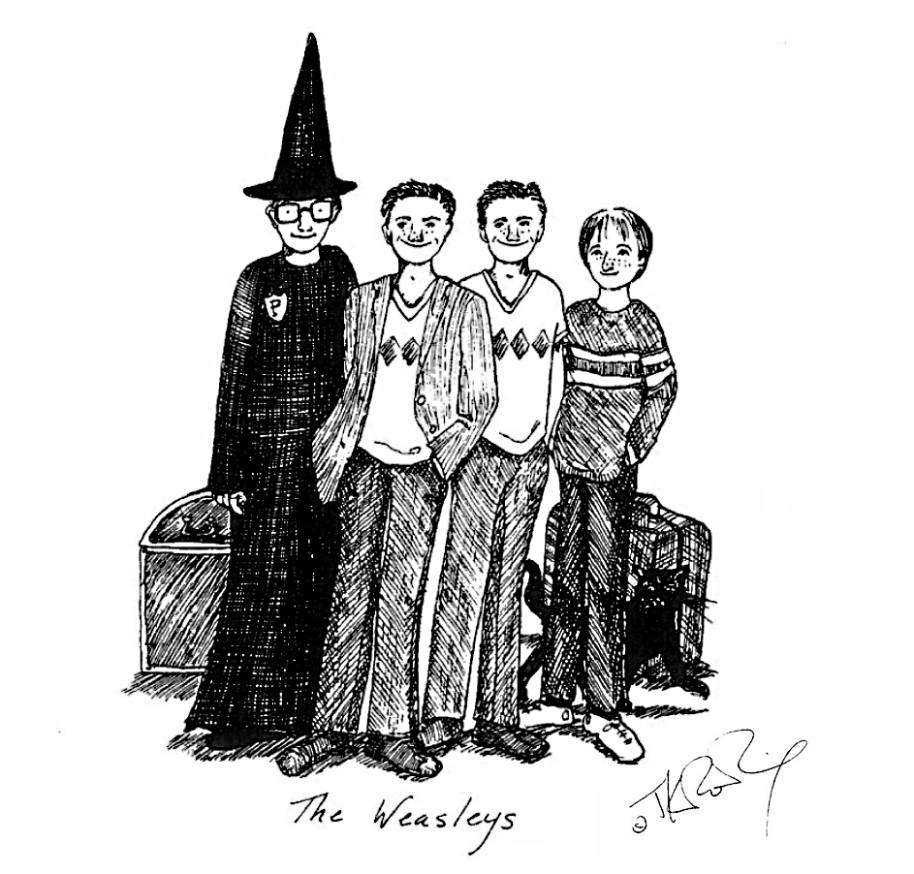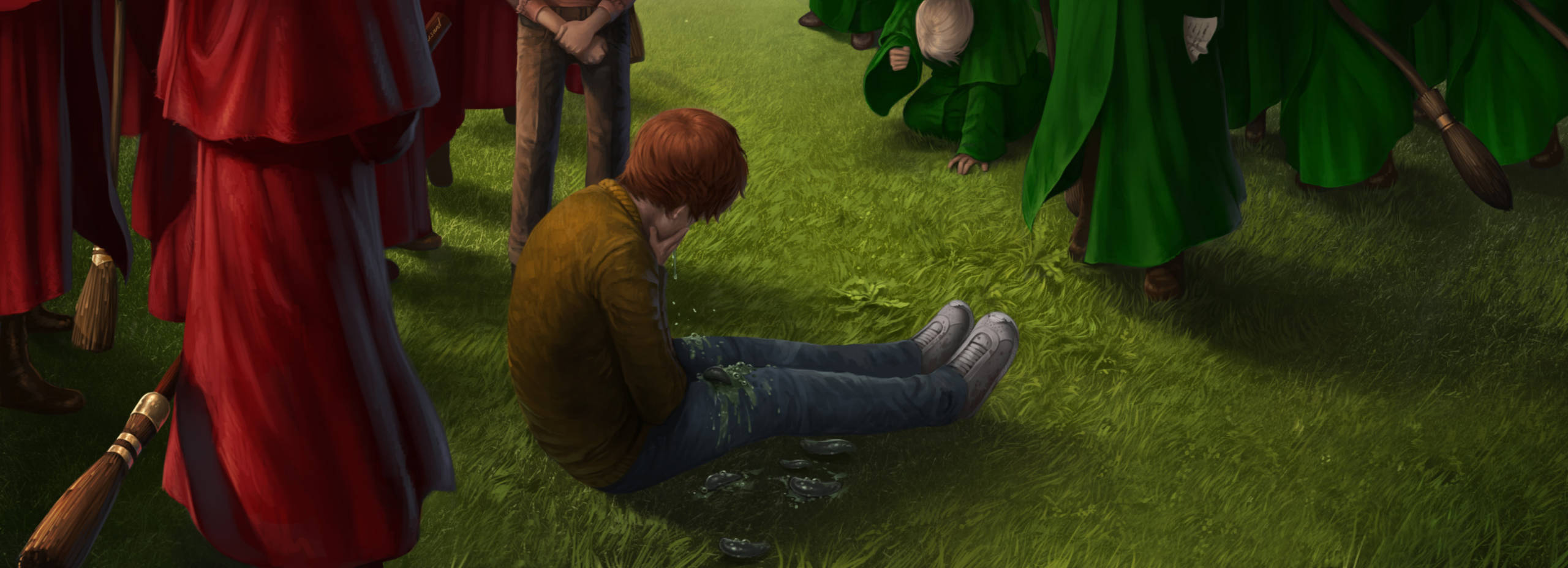Slytherin’s discrimination on the basis of parentage was considered an unusual and misguided view by the majority of wizards at the time. Contemporary literature suggests that Muggle-borns were not only accepted, but often considered to be particularly gifted. They went by the affectionate name of ‘Magbobs’ (there has been much debate about the origin of the term, but it seems most likely to be that in such a case, magic ‘bobbed up’ out of nowhere).
Magical opinion underwent something of a shift after the International Statute of Secrecy became effective in 1692, when the magical community went into voluntary hiding following persecution by Muggles. This was a traumatic time for witches and wizards, and marriages with Muggles dropped to their lowest level ever known, mainly because of fears that intermarriage would lead inevitably to discovery, and, consequently, to a serious infraction of wizarding law.*
Under such conditions of uncertainty, fear and resentment, the pure-blood doctrine began to gain followers. As a general rule, those who adopted it were also those who had most strenuously opposed the International Statute of Secrecy, advocating instead for outright war on the Muggles. Increasing numbers of wizards now preached that marriage with a Muggle did not merely risk a possible breach of the new Statute, but that it was shameful, unnatural and would lead to ‘contamination’ of magical blood.**
As Muggle/wizard marriage had been common for centuries, those now self-describing as pure-bloods were unlikely to have any higher proportion of wizarding ancestors than those who did not. To call oneself a pure-blood was more accurately a declaration of political or social intent (‘I will not marry a Muggle and I consider Muggle/wizard marriage reprehensible’) than a statement of biological fact.
Several works of dubious scholarship, published around the early eighteenth century and drawing partly on the writings of Salazar Slytherin himself, make reference to supposed indicators of pure-blood status, aside from the family tree. The most commonly cited signs were: onset of magical ability before the age of three, early (before aged seven) prowess on a broomstick, dislike or fear of pigs and those who tend them (the pig is often considered a particularly non-magical animal and is notoriously difficult to charm), resistance to common childhood illnesses, outstanding physical attractiveness and an aversion to Muggles observable even in the pure-blood baby, which supposedly shows signs of fear and disgust in their presence.
Successive studies produced by the Department of Mysteries have proven that these supposed hallmarks of pure-blood status have no basis in fact. Nevertheless, many pure-bloods continue to cite them as evidence of their own higher status within the wizarding community.
In the early 1930s, a ‘Pure-Blood Directory’ was published anonymously in Britain, which listed the twenty-eight truly pure-blood families, as judged by the unknown authority who had written the book***, with ‘the aim of helping such families maintain the purity of their bloodlines’. The so-called ‘Sacred Twenty-Eight’ comprised the families of:
Abbott
Avery
Black
Bulstrode
Burke
Carrow
Crouch
Fawley
Flint
Gaunt
Greengrass
Lestrange
Longbottom
Macmillan
Malfoy
Nott
Ollivander
Parkinson
Prewett
Rosier
Rowle
Selwyn
Shacklebolt
Shafiq
Slughorn
Travers
Weasley
Yaxley

A minority of these families publicly deplored their inclusion on the list, declaring that their ancestors certainly included Muggles, a fact of which they were not ashamed. Most vocally indignant was the numerous Weasley family, which, in spite of its connections with almost every old wizarding family in Britain, was proud of its ancestral ties to many interesting Muggles. Their protests earned these families the opprobrium of advocates of the pure-blood doctrine, and the epithet ‘blood traitor’. Meanwhile, a larger number of families were protesting that they were not on the pure-blood list.
* Over subsequent decades and centuries, the number of mixed marriages began to climb again to the healthy levels of today, and this has not led to widespread discovery of the hidden magical community. Professor Mordicus Egg, author of The Philosophy of the Mundane: Why the Muggles Prefer Not to Know, points out that Muggles in love generally do not betray their husbands or wives, and Muggles who fall out of love are jeered at by their own community when they assert that their estranged partner is a witch or wizard.
** In fact, the reverse appears to be true. Where families adhered consistently to the practice of marrying within a very small group of fellow witches and wizards, mental and physical instability and weakness seemed to result.
*** Widely believed to be Cantankerus Nott.




